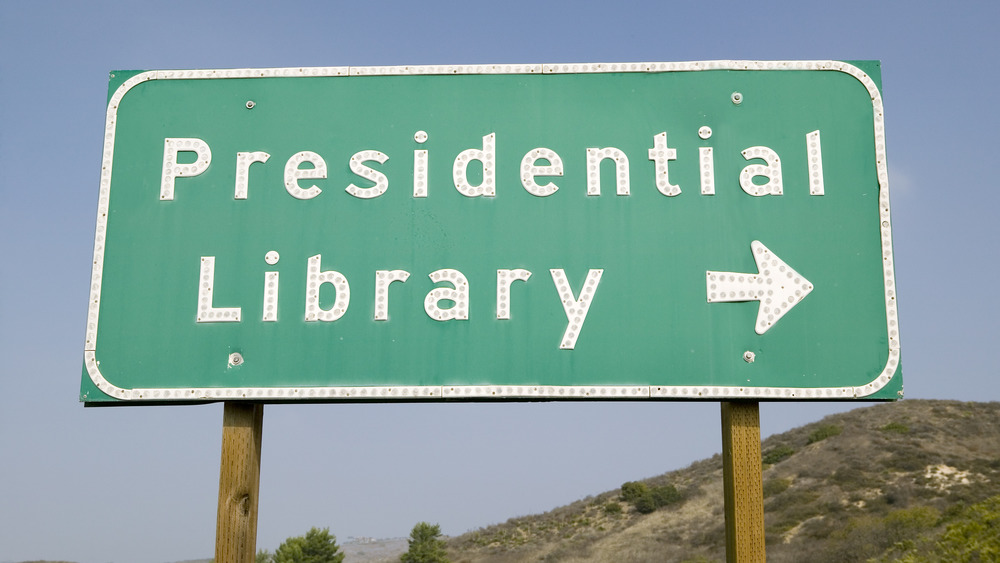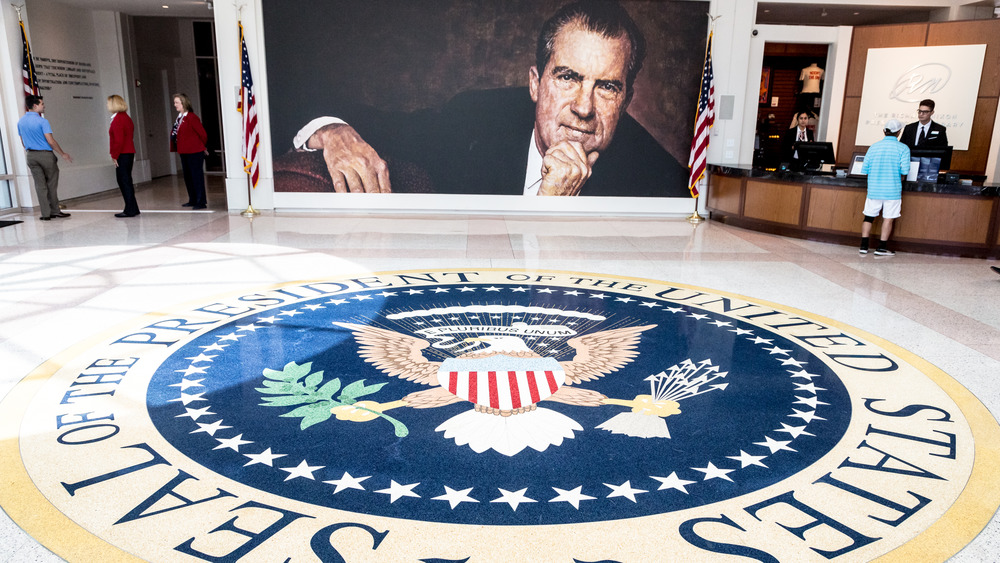The Reason Former Presidents Must Establish A Presidential Library
Why are former presidents of the United States guaranteed their own libraries once they leave office? What goes into these libraries, anyway?
The first presidential library, according to the Washington Post, belonged to Franklin Delano Roosevelt, who announced midway through his second term in 1938 that he would establish a personal public archive in his hometown of Hyde Park, New York. Roosevelt was reportedly concerned that his administrations' records would be lost, destroyed, or sold, which had been the case for past presidents. He also wanted a place in which to write his memoirs and to "burnish his image as a defender of democracy." When the library opened in 1941, he made explicitly antifascist remarks, announcing that his archive "is dedicated at a moment when government of the people by themselves is being attacked everywhere," as quoted on the website of the library and museum.
By 1955, Congress had passed the Presidential Libraries Act, which served to encourage presidents to donate their papers to the government, which would in turn preserve the materials and make them available to the public. It was still acceptable for presidents to retain legal ownership of the papers, however, even after submitting them to the government. That all changed when Richard Nixon made history and resigned from the presidency in 1974.
Nixon's papers set a precedent
After Richard Nixon resigned in order to avoid being impeached and removed from office as a result of the Watergate scandal, he attempted to retain the "secretly recorded conversations and other material from his scandal-tainted administration," per the Washington Post. Congress seized the papers, calling them public, not private, property. In 1978, a new law, the Presidential Records Act, established that the government retains "complete ownership, possession, and control" of presidents' papers.
Presidents continue to fund the sites, however, and choose where the libraries will be established as well as the stories told within. It's not an accident that Bill Clinton's library barely mentions his affair with Monica Lewinsky, which led to his impeachment and almost ended his presidency. George W. Bush's library features "none-too-subtle defenses of Bush's most controversial decisions" around the invasion of Iraq and the torture used by his administration to interrogate suspected terrorists.
Although former presidents must raise the funds to open the libraries, their day-to-day operations are funded via taxes. Annual operating expenses of 13 presidential libraries approach a whopping $100 million.

